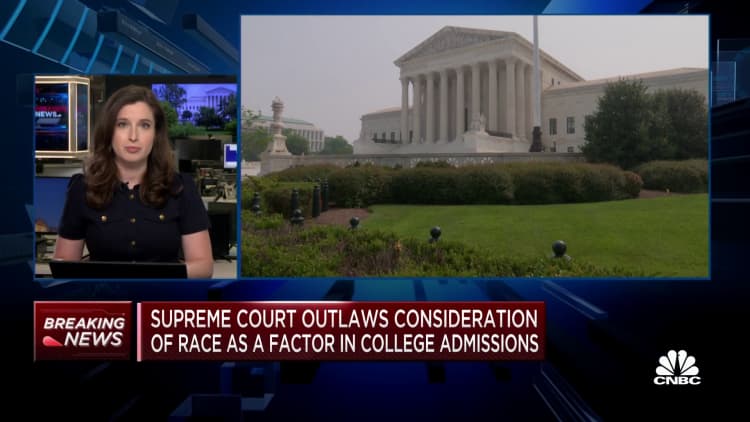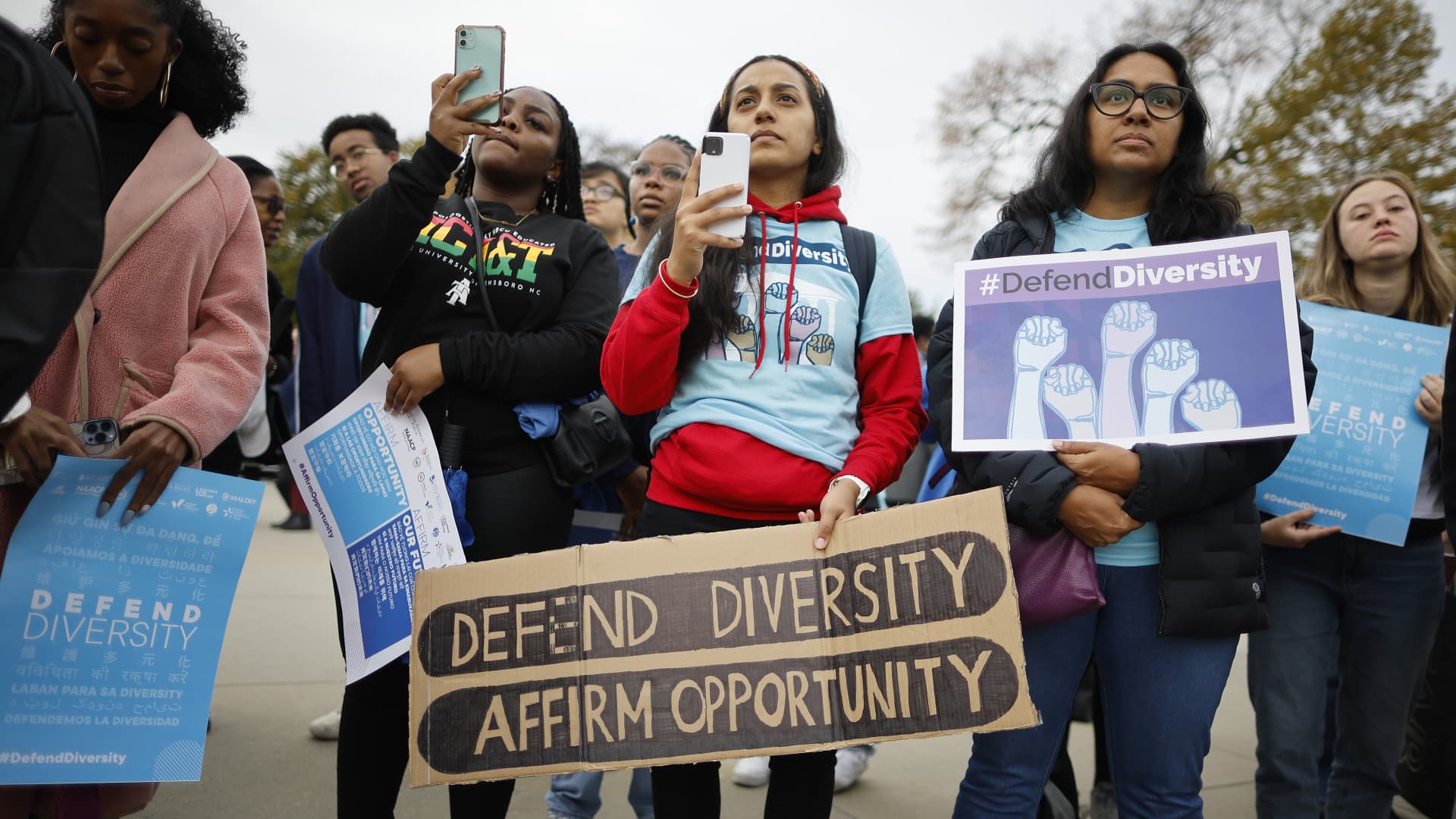
The Supreme Court on Thursday ruled that the affirmative action admission policies of Harvard and the University of North Carolina are unconstitutional.
The ruling is a massive blow to decades-old efforts to boost enrollment of minorities at American universities through policies that took into account applicants’ race.
The majority opinion by Chief Justice John Roberts, which all five of his fellow conservative justices joined in, said that both Harvard’s and UNC’s affirmative action programs “unavoidably employ race in a negative manner, involve racial stereotyping, and lack meaningful end points.”
“We have never permitted admissions programs to work in that way, and we will not do so today,” Roberts wrote.
The majority said that the universities’ policies violated the equal protection clause of the Constitution’s 14th Amendment.
Justice Clarence Thomas, a Black conservative who wrote a concurring opinion, said that the schools’ affirmative action admissions policies “fly In the face of our colorblind constitution.
“Two discriminatory wrongs can not make a right,” wrote Thomas.
In her dissent to the majority, liberal Justice Ketanji Brown Jackson, who is Black, called the ruling “truly a tragedy for us all.”
Proponents for affirmative action in higher education rally in front of the U.S. Supreme Court before oral arguments in Students for Fair Admissions v. President and Fellows of Harvard College and Students for Fair Admissions v. University of North Carolina on October 31, 2022 in Washington, DC.
Chip Somodevilla | Getty Images
Her fellow liberal, Justice Sonia Sotomayor, said: “Today, this Court stands in the way and rolls back decades of precedent and momentous progress.”
Sotomayor said that the majority “holds that race can no longer be used in a limited way in college admissions to achieve such critical benefits.”
In doing so, she argued the Supreme Court “cements a superficial rule of colorblindness as a constitutional principle in an endemically segregated society where race has always mattered and continues to matter.”
U.S. Supreme Court Justice Sonia Sotomayor
Getty Images
Thursday’s ruling dealt with two separate, but related cases, one for Harvard, the other for UNC.
In the Harvard case, the vote on the decision was 6-2, with Jackson taking no part in considering the case. Jackson last year during her Senate confirmation hearings agreed to recuse herself in the case involving Harvard, whose Board of Overseers she served on until early 2022.
In the UNC case, the vote was 6-3, with Jackson participating in considering the case and dissenting with Sotomayor and Justice Elena Kagan, the court’s third liberal.
UNC Chancellor Kevin Guskiewicz, in a statement said, “Carolina remains firmly committed to bringing together talented students with different perspectives and life experiences and continues to make an affordable, high-quality education accessible to the people of North Carolina and beyond.”
“While not the outcome we hoped for, we will carefully review the Supreme Court’s decision and take any steps necessary to comply with the law,” Guskiewicz said.
Former President Donald Trump, who is seeking the 2024 Republican presidential nomination, in a statement said, “This is a great day for America.”
“We’re going back to all merit-based — and that’s the way it should be!” said Trump, who graduated from the Wharton School at the University of Pennsylvania, an Ivy League school like Harvard, after growing up the son of a wealthy New York real estate developer.







More Stories
What happened in the UK’s infected blood scandal? Inquiry report will be revealed on Monday – Times of India
Russia says Ukraine makes 60-drone attack on Russia, oil refinery halted – Times of India
Another terror attack on girls’ school in Pakistan – Times of India